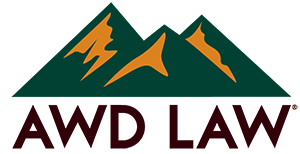Summary
On April 14, 2020, the Small Business Administration issued additional rules related to the Paycheck Protection Program (PPP). The newly issued rules provide clarification and guidance for self-employed individuals (including independent contractors) seeking a PPP loan. Below is a high-level summary of key portions of the new rules. However, this summary is neither exhaustive nor a complete analysis of such newly issued rules. The full text of the new rule can be found here: https://home.treasury.gov/system/files/136/Interim-Final-Rule-Additional-Eligibility-Criteria-and-Requirements-for-Certain-Pledges-of-Loans.pdf
Eligibility for Individuals with Self-Employment Income (Sole Proprietors & Independent Contractors)
Individuals with self-employment income (including independent contractors or sole proprietors) who were operating on February 15, 2020 and who filed (or will file) Schedule C with their 2019 federal income tax returns are eligible for individual PPP loans. Partners in a partnership, or an LLC taxed as a partnership, are not eligible for an individual PPP loan, but see the next section of this email.
Partners in a Partnerships (including an LLC taxed as partnership)
Partners in a partnership, including LLC members in an LLC that files taxes as a partnership, are not eligible to individually apply for a PPP loan. Instead, the partnership or LLC may apply for a PPP loan and include the self-employment income of general active partners or members as a payroll cost, up to $100,000 annualized.
What if You Have Already Submitted a Loan Application?
If your business is a partnership or an LLC that files taxes as a partnership and you have already submitted a PPP loan application without including partner or member compensation, you should contact your lender as soon as possible to determine the possibility of amending or supplementing the application to include partner compensation. We are informed that some businesses have successfully amended their applications. We are also informed that once your bank approves the application and forwards it to the SBA, amendment is no longer possible. In that case, you might be able to withdraw the application altogether and start over. There may be compelling reasons to do that (for example, increasing the funds you might receive), and there may be compelling reasons not to (for example, significantly delaying receipt of funds or risking not receiving them at all if the loan fund is used up).
Calculating PPP Loan Amount
The calculation to determine the maximum PPP loan amount available to self-employed individuals depends on whether the self-employed individual has employees or not. The maximum amount available to a self-employed individual without employees is calculated based on the net profit amount reported on such individuals 2019 IRS Form 1040 Schedule C, located on line 31. If this amount is over $100,000, it is reduced to $100,000. If this amount is zero or less than zero, such individual is not eligible for a PPP loan. The line 31 amount is then divided by 12 and then multiplied by 2.5. Any outstanding amount of an Economic Injury Disaster Loan made between January 31, 2020 and April 3, 2020, less the amount of any advance under an EIDL COVID-19 loan, may be added to the PPP loan amount. If the self-employed individual has employees, payroll costs for those employees are eligible as for any business.
Documentation
A self-employed individual applying for a PPP loan must provide their Form 1040 Schedule C with the PPP application, as well as other documentation establishing that they are self-employed and that they were in operation on or around February 15, 2020. If the self-employed individual has employees, Form 941 must also be provided (or other tax forms or equivalent payroll processor records containing similar information) and state quarterly wage unemployment insurance tax reporting form from each quarter in 2019 or equivalent payroll processor records, in addition to evidence of any retirement and health insurance contributions, if applicable.
Loan Uses
PPP loans for individuals with self-employment income may use the proceeds from the PPP loan for the same purposes a business entity may use PPP loan proceeds. Those purposes are:
- Owner compensation replacement
- Employee payroll costs
- Mortgage interest payments on any business mortgage obligation on real or personal property*
- Business rent payments*
- Business utility payments*
- Interest payments on any other debt obligations that were incurred before February 15, 2020 (such amounts are not eligible for PPP loan forgiveness)
- Refinancing an SBA EIDL loan made between January 31, 2020 and April 3, 2020. If such an EIDL loan was used for payroll costs, your PPP loan must be used to refinance your EIDL loan.
*In order for a self-employed individual to use PPP loan proceeds for mortgage interest payments, business rent payments or business utility payments during the eight-week period after first disbursement of the loan, such individual must have claimed or be entitled to claim a deduction for such expenses on their 2019 Form 1040 Schedule C.
Similar to PPP loans for businesses, self-employed individuals must use 75% of the PPP loan proceeds for payroll costs (including owner compensation replacement).
PPP Loan Forgiveness
Upon application, PPP loans may be forgiven up to the full amount of the principal loan amount plus interest. The forgiveness amount is equal to owner compensation replacement, payroll costs (up to $100,000 annualized pay per employee, equal to $15,385 per employee for an eight week period), business mortgage interest payments, business rent, and business utilities incurred or paid during the 8-week period following the origination date of the loan. The amount of owner compensation replacement forgiveness is limited to eight weeks’ worth (8/52) of 2019 net profit. Additionally, 75% of the mount forgiven must be attributable to payroll costs (including owner compensation replacement). The loan forgiveness amount is excluded from taxable income of the business.
Can AWD LAW help me?
AWD LAW is here to answer your questions. This summary is intended to serve as general information for interested persons, but it is not legal advice for any specific situation. AWD LAW attorneys are available to answer fact-specific questions for our clients. Our number is (928) 774-1478.
